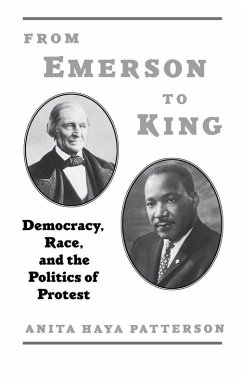This book traces a provocative line from Emerson's work on race, reform, and identity to work by three influential African- American thinkers--W. E. B. Du Bois, Martin Luther King Jr., and Cornel West--each of whom offers subtle engagement with both the tradition of written protest and the critique of liberalism Emerson shaped. Emerson has been cast in recent debate as either an antinomian or an ideologue--as either subversive of institutional controls or indebted to capitalism. Here, Patterson contributes a more nuanced view, probing Emerson's record and its cultural and historical matrix to document a fundamental
rhetoric of contradiction--a strategic aligning of opposed political concepts--that enabled him to both affirm and critique elements of the liberal democratic model. Drawing richly on topics in political philosophy, law, religion, and cultural history, Patterson examines the nature and implications of Emerson's contradictory rhetoric in parts I and II. In part III she considers Emerson's legacy from the perspective of African-American intellectual history, identifying fresh continuities and crucial discontinuities between the canonical strain of protest writing Emerson helped establish and African-American literary and philosophical traditions.
Dieser Download kann aus rechtlichen Gründen nur mit Rechnungsadresse in A, B, BG, CY, CZ, D, DK, EW, E, FIN, F, GR, HR, H, IRL, I, LT, L, LR, M, NL, PL, P, R, S, SLO, SK ausgeliefert werden.









